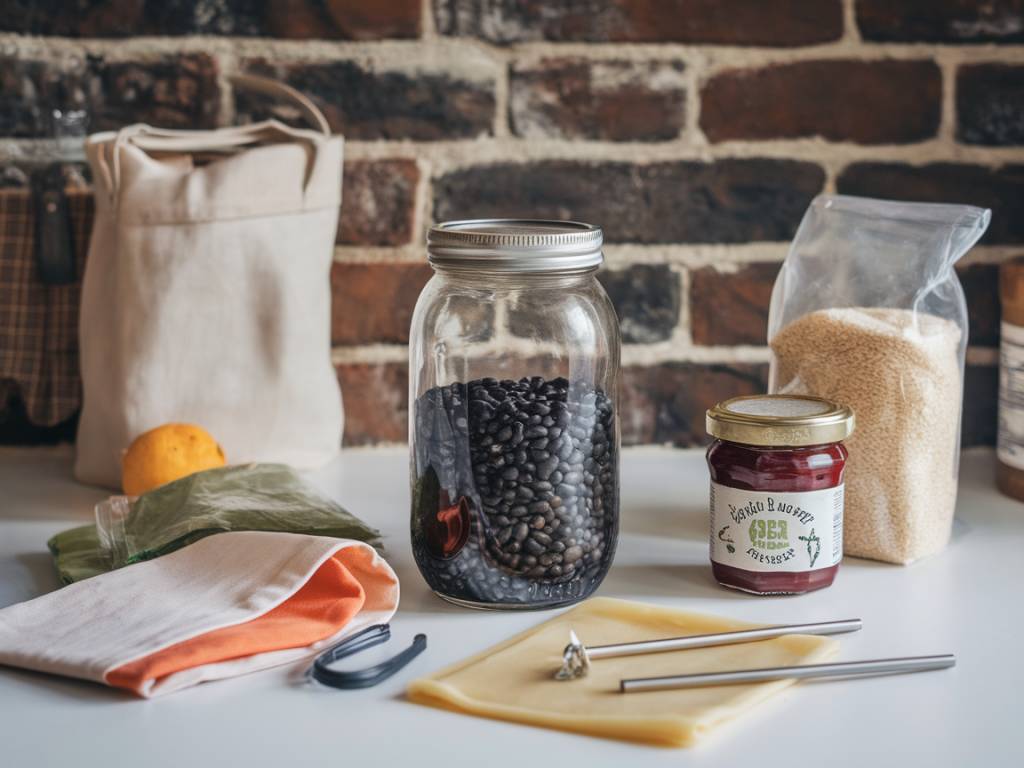From Niche Trend to National Shift: The UK’s Embrace of Zero-Waste Living
In a country where the average household produces over a tonne of waste annually, a quiet revolution is underway. Across the UK, more citizens are turning to zero-waste living—not as a passing trend, but as a conscious lifestyle choice. From boroughs in Bristol to flats in East London, people are radically rethinking how they consume, reuse and discard.
But what is fuelling this shift? Why are British households embracing the « zero » in zero-waste? And, perhaps more importantly, how are they managing to reduce their bin sizes without reducing their quality of life?
What Exactly Is Zero-Waste Living?
Zero-waste living is more than just refusing plastic straws or bringing your own tote to the supermarket. It’s a systems-based philosophy that aims to redesign our resource use—from consumption to disposal—so that nothing goes to landfill or incineration. The concept follows the “5Rs”: Refuse, Reduce, Reuse, Recycle, and Rot (i.e., compost), in that order of priority.
The goal? To break away from our linear « take-make-dispose » model and move toward a truly circular economy. For individual households, that means challenging deeply ingrained habits and choosing intentional alternatives—from bulk shopping to DIY toothpaste.
Why It’s Catching On in British Homes
Several cultural, social and political factors are fuelling the growing popularity of zero-waste living in the UK.
- Greater Climate Awareness: The surge in climate-related media coverage, school strikes led by climate advocates, and rising concern over plastic pollution have pushed environmental issues into the national spotlight. For many Brits, reducing household waste is a tangible action in an otherwise overwhelming climate crisis.
- Sheer Visibility of Waste: UK cities are grappling with overflowing bins and plastic-littered waterways. When you see the problem in your street, the impulse to do something about it becomes tangible.
- Government Policy and Incentives: In recent years, policies like the ban on plastic straws and cotton buds, charges on plastic bags, and plans for Extended Producer Responsibility (EPR) have nudged consumers toward waste-conscious behaviours.
- Digital Communities: Platforms like Instagram and Reddit host thriving zero-waste communities where individuals share tips, product reviews, and “waste audits” as real-time motivators. Hashtags like #ZeroWasteUK have become hubs of positive peer pressure.
From Kitchen Bin to Compost Bin: Everyday Changes That Matter
Change often begins at home, and perhaps no room reflects our waste habits more than the kitchen. Across the UK, families are adopting small but impactful changes in the way they shop, cook and store food.
- Bulk buying and refill stations: More neighbourhood shops are embracing refill stations for dry foods, liquids and cleaning products. Independent stores like The Source Bulk Foods and Zero Green in Bristol offer packaging-free options for staples like pasta, rice and cereals—even shampoo!
- Composting: Whether through a backyard compost bin or a council-run food waste caddy, composting is rapidly becoming standard practice. Some local councils now offer subsidised compost bins, making it easier to divert food scraps from landfill.
- Meal planning and food preservation: Households are leaning into practices like “fridge foraging” and “Sunday batch cooking” to prevent food waste. Extensions like TooGoodToGo and Olio are also helping consumers rescue surplus food from shops and neighbours.
Bathroom Habits Get a Sustainable Makeover
The average UK household goes through hundreds of plastic toothbrushes, shampoo bottles and cotton pads a year. Switching out these everyday items can create a surprisingly large dent in annual waste output.
- Solid toiletries: Swapping liquid shampoo for solid shampoo bars eliminates the plastic container altogether. Brands like Ethique and Lush are leading the way with zero-waste personal care lines.
- DIY personal care products: From homemade deodorant using baking soda and coconut oil to toothpaste in reusable jars, DIY beauty is back in vogue—and often gentler on both skin and planet.
- Reusable alternatives: Safety razors, menstrual cups and reusable cotton rounds are becoming common fixtures in the modern British bathroom.
Zero-Waste Parenting: A New Generation of Conscious Choices
Raising children often multiplies a household’s waste footprint—think nappies, wipes, baby food pouches and fast fashion. Yet, more UK families are proving that parenthood and sustainability can go hand-in-hand.
- Cloth nappies: Not just for the ultra-green anymore, reusable nappies are gaining mainstream traction thanks to better design and support communities. Brands like Bambino Mio and TotsBots have seen a significant rise in demand.
- Second-hand baby items: Platforms like Facebook Marketplace, Little Loop and even local WhatsApp groups are feeding a circular economy for strollers, clothing and toys.
- Homemade baby food: Batch cooking and freezing baby meals in reusable silicone pouches is helping parents cut down on packaging waste while keeping a pulse on what’s actually in their child’s meals.
Challenges on the Road to Zero-Waste
Of course, a fully zero-waste lifestyle is not without its obstacles—especially in a society designed for convenience. Affordability remains a key barrier: bulk and eco-friendly products can cost more upfront, and zero-waste shops are still scarce in less urban areas. Not to mention, time is a luxury not everyone can afford.
Then there’s the cultural friction. Zero-waste living often rubs against habits and systems that prioritise speed and disposability. Saying “no” to freebies or refusing over-packaged products can feel awkward at best—and socially alienating at worst.
Still, these challenges are not insurmountable. Many find that starting with one area—a room, a product category, or a goal like “one bin bag of waste per month”—makes the transition more manageable.
Policy, Business, and Community: Scaling Impact Beyond the Home
While individual actions matter, structural support is essential if zero-waste living is to move from niche to norm.
Local councils across the UK are experimenting with zero-waste initiatives: from communal composting schemes in Brighton to Glasgow’s pilot ‘zero-waste high street’. Supermarkets are also starting to listen. Marks & Spencer and Waitrose now pilot refill stations in select locations, and even Tesco has introduced loop packaging trials.
Schools are another breeding ground for zero-waste principles, with eco-committees, lunchbox policies and composting systems teaching the next generation to value circularity. Some school canteens have even adopted “zero food waste” challenges, encouraging kids not just to finish their meals but to understand the environmental cost of leftovers.
Small Bins, Big Impact
Zero-waste living is not about perfection—it’s about intention. No household is expected to go from multiple black bags a week to a single mason jar in a month, but every swap, refusal and reuse sends a message: we are ready to redefine the full lifecycle of what we consume.
As more UK households embrace zero-waste choices, they’re not just reducing landfill loads. They’re reshaping markets, influencing policy, and contributing to a broader cultural pivot toward sustainability. In a world where every fraction of a degree matters, perhaps every gram of spared waste does too.
So if your bin feels a little lighter this week, know that you’re part of a much heavier push—for cleaner cities, healthier ecosystems, and a circular economy that benefits all.



